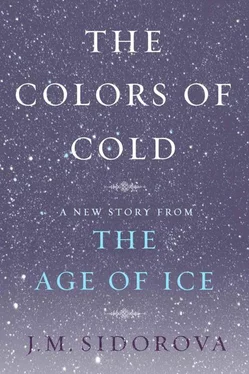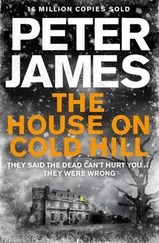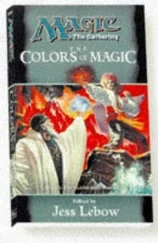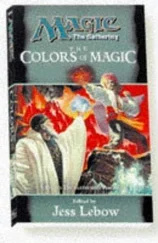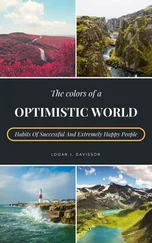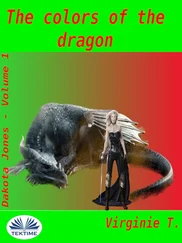“Oh my God, I shouldn’t have—if I’d known—”
“It’s all right. It’s just—something is a little wrong right now.”
“Something what?!”
“It’s not a man’s business, Alexander. Will you just get me home, please?”
* * *
The bumpy sleigh ride I had made her endure… of course it was all my fault! I would kill myself if she lost her baby. They confined her to bed. They were saying the worst hadn’t happened, and she was hopeful. Days passed. I stayed at her side as often as she’d let me. I kept track of her face. If she was calm, I breathed. If she looked concerned, I held my breath. At the same time I kept thinking: A baby. A baby! My brother must be normal. He is not like me. I am alone. Curse them. Curse the world! I no longer needed her answer, when one day she said, “That question you had asked… Your brother is not at all a cold man. He cares deeply about me. He is a devoted husband.” Then she asked, “Tell me, what had happened between Marie Tolstoy and you?”
As I opened my mouth to respond, Andrei walked in the door. You see—the problem with the Turkish war was that it just would not start in earnest. So Andrei had sought permission to leave the idle troops to be with his pregnant wife, and showed up at Velitzyno quite unexpectedly.
“What did you do to my wife?!” were Andrei’s first words. Then, as Anna—instantly oblivious of me—lifted her arms to greet her normal husband, he took control of his emotions and asked me out for a word. Anna objected, “Alexander had done me no wrong!” but Andrei was already closing the door behind us. When we were out of Anna’s earshot, he berated me. I rebuked not a single fantastic accusation of his because I felt guilt and—at the same time—because I didn’t want to give him the satisfaction. But I promised to remove myself from the scene, and to begin with, I absconded to the old barn I’d frequented with Matryona.
As I yanked at the barn’s door, a whole rack of icicles, sharp and long, broke off the eaves, plunged down in front of my face, and stabbed the snow, narrowly missing my foot. I picked up the icicles one by one and broke them into smaller and smaller pieces until my palms bled and only the icicles’ wrist-thick roots resisted my best attempts at destruction. Those I hurled against the barn wall, again and again. Shards ricocheted into me. After a while there was no piece left larger than a pea.
And then, at long last, my supply of rage ran out. It occurred to me that it was time to stop asking God for help, because if he was paying attention, he ought to be helping Matryona and Savva and Anna, not me; that I was one year away from turning thirty and had nothing to show for it… If I was serious about loathing myself, it was time to graduate to doing it quietly—and responsibly, without the bonfire and attendant harm to others.
It would be, at any rate, more honest.
* * *
Curiously, when I undressed for bed that night, I found a shard of an icicle stuck between my vest and shirt. I placed it on my dresser and found it still solid come morning. I had no idea what I’d done to it, but it never melted: not when I washed my dried blood off it, nor after a week in my pocket when I brought it to a certain Herr Goldstein in St. Petersburg, a jeweler. I said that it came to me by chance, what was it? Herr Goldstein inspected it with ardor, then told me circumspectly that he did not know what it was but could buy it off me. Had I any more of these stones? Maybe, I said. I told him to name the price, and he did. I doubled the number, stooped over him across the table, and watched what he’d do. As soon as he conceded, I leaned further forward and told him to explain himself. “It is not a diamond,” he said with trepidation, “But it could pass as one. If Your Nobleship were interested in considering the possibilities .”
I was interested.
Herr Goldstein’s money bought me Matryona and Savva. I settled them away from myself, in Preobrazhenskaya Sloboda, the main campus of my regiment in St. Petersburg, and set Matryona up as a laundress. In truth, I did not want to ever see her. It caused me grief. It could be said that I manumitted her and Savva because I did not want to be legally responsible for them. Except that I felt responsible still.
In June Anna gave birth to a healthy boy, Andrei Junior, and insisted that I become his godfather. I returned to Velitzyno for the baptism and beheld the happy family. “You two—make peace,” Anna ordered, a superior authority of motherhood upon her, and we obliged. An eerie feeling it was, when my brother and I stalked toward each other: it was like walking toward one’s own long-lost reflection, now feral and unrecognizable. We embraced—and, remarkably, no annihilation commenced. Then I got to hold the little one, Andrei Junior. It was joy. Thus came about my last, most important, lesson: Joy made me cold too.
I wasn’t alerted to it by the infant’s complaint—I gave him up before the wave of cold crested because I felt it coming, and I swallowed the bitter discovery without so much as a chuckle. I was a student of reserve now. I was training myself to accept that my life would be spent giving up, pulling back, stepping aside—always on the watch for a seizure of cold and ready to withdraw well before anyone complained.
As for the icicles—I found a few more of them by the old barn. Just lying there in the dirt as new grass was pushing out all around them.
Time Line of Events from The Age of Ice
1550–1850 The so-called Little Ice Age in Europe—a period of overall colder temperatures.
1740 Ice Palace erected in St. Petersburg. Empress Anna Ioannovna dies.
Twins Andrei and Alexander are born to Prince Mikhail “The Clown” Velitzyn and Avdotia, née Buzheninova.
1742–61 Reign of Empress Elizaveta.
1747 Anna Khitrovo born.
1752 Andrei and Alexander enter the Cadet Corps military school in St. Petersburg.
1757–62 The Seven Years’ War.
1757 Alexander joins the Preobrazhensky Leib Guard.
1762 Peter III, husband of Ekaterine, crowned, only to be deposed and murdered by the Orlov brothers.
1762–96 Reign of Empress Ekaterine II, or Catherine the Great.
1768 Empress Ekaterine invites Dr. Thomas Dimsdale to St. Petersburg to perform vaccinations against smallpox. After a demonstration of the vaccine’s safety, she, her young son the Grand Duke, and the court receive inoculations.
Alexander volunteers to be a guinea pig for the first smallpox inoculation, before the vaccine is offered to the royalty.
1769 Andrei Junior is born to Andrei Velitzyn and Anna Khitrovo.
1769–74 War with the Ottoman empire.
1771–75 Circle of Sentimentalists active in Darmstadt: Goethe and Johann Heinrich Merck.
1772–74 Pugachev’s revolt in south-central Russia. 1773, October-February: Orenburg, the city-fortress, is besieged.
1773 December: Alexander travels to Orenburg. Andrei dies.
1774 Goethe publishes The Sorrows of Young Werther .
1775 James Watts perfects his steam engine with a condenser.
1779 Captain Cook is murdered on Kauai Island.
1781 Herschel discovers the planet Uranus.
Alexander duels with and kills Paul Svetogorov.
1783 Britain recognizes U.S. independence.
1785–93 Captain Joseph Billings leads Russian-British expedition in search of the Northeast Passage.
Alexander joins the expedition.
1789 French Revolution begins. Storm of the Bastille, National Assembly.
1787 Alexander “glaciates.” Discovered two months later by Dr. Merck.
Читать дальше
